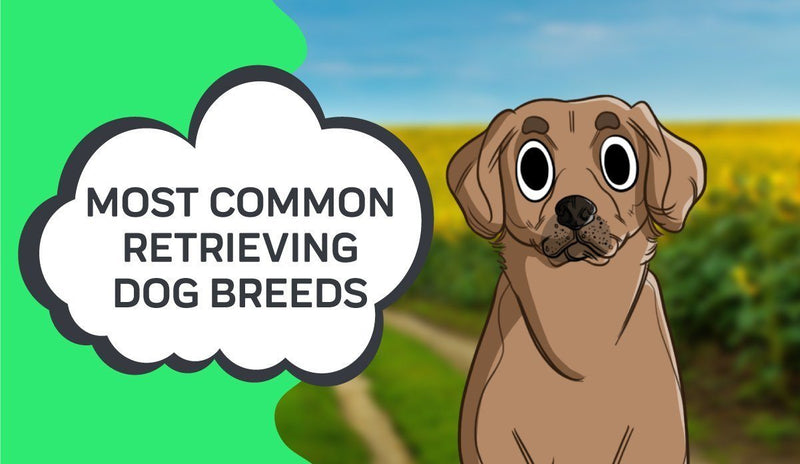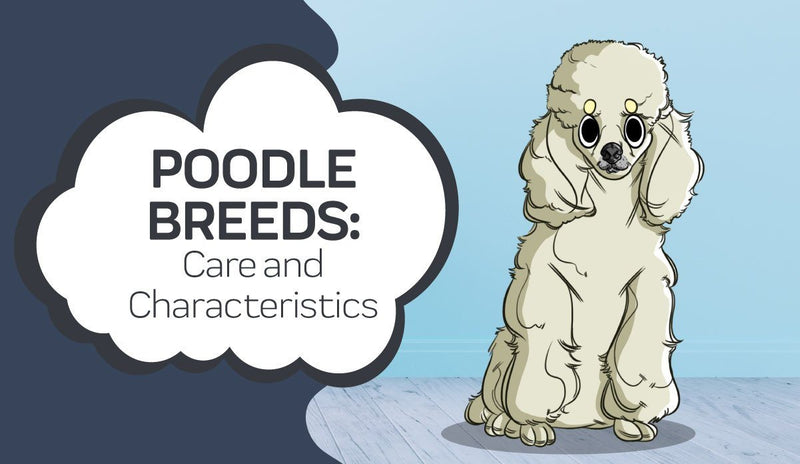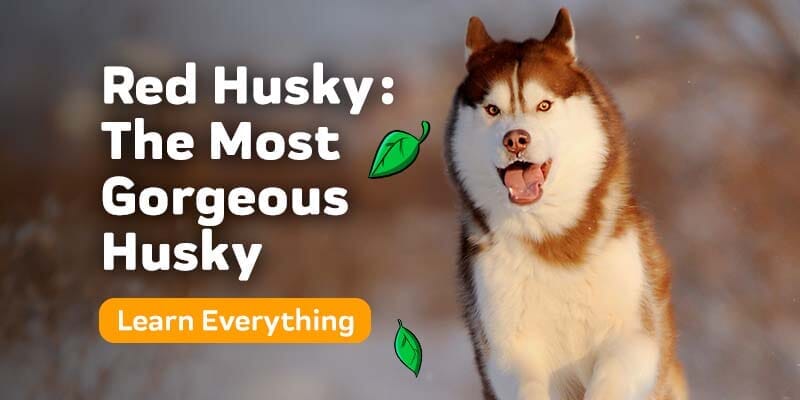
What Is An English Bulldog?
English Bulldogs are up there with Dalmatians and Golden Retrievers for being one of the most easily recognizable dogs around. They have a distinctive look to them, with their most prominent characteristic being their short snouts and chubby faces.
English Bulldogs are short - only about a foot tall - and extremely stout. They're tough little guys and were originally bred to fight bulls. These days, they've lost all of their fight and have turned into super lovable dogs.
They're very friendly, don't require much exercise, and have a lot to offer for new families. However, they do have a tendency to develop health issues later in life and require some extra attention in certain areas.
The History Of The English Bulldog
As the name suggests, the English Bulldog was originally bred in England for a sport known as bullbaiting. In this medieval sport, Bulldogs would attack and taunt tethered bulls, eventually pinning the bull down to be executed.
Bullbaiting was outlawed in 1865, however, which seemed like the end for the little fighting machines. They were notoriously aggressive, and only bred for a singular purpose - so why keep them as pets?
Well, over time, passionate breeders were able to turn these little fighters into the chubby cuddlers we know them as today. They're now one of the more revered breeds of dogs, and often can be found on display at dog shows around the world.
Appearance And Personality Of English Bulldogs
English Bulldogs have a very distinctive look. Their heads are large and round, with a flat muzzle. They have large, broadly set jaws, and have droopy jowls and skin all around their face. They have a short and thick body, with broad shoulders and stocky legs. They come in a variety of color patterns, though the most well known is white and brown.
Despite their fierce appearance and history, they are some of the gentlest dogs around. The English Bulldog personality portrays to be very sociable, especially with people, so you don't have to worry about introducing them to new animals and friends.
That said, they are still loyal and brave, making them great watchdogs. They don't scare easy and will do more than just bark if they sense an intruder.
The Different Types Of English Bulldogs
Blue English Bulldog
The Blue English Bulldog is a variation of the traditional English Bulldog with two major differences. The most obvious is its coat color. Blue English Bulldogs have a grey and white coat mix, as opposed to a brown and white coat.
The second difference, and the characteristic most people seeking out Blue English Bulldogs are interested in them, is their blue eyes. Blue eyes are rare on just about any dog, but especially when it comes to English Bulldogs, who traditionally have dark brown and black eyes.
While this may not seem like a big deal to most, this one change can be very difficult to breed for. And as a result, these dogs are much, much more expensive than traditional English Bulldogs.
British bulldog
British Bulldogs are the standard English Bulldogs that you think of or see the majority of the time. They have a brown and white coat with dark brown eyes and are the least expensive of the English Bulldog variations.
Mini bulldog
The Mini Bulldog - sometimes called the Toy Bulldog - is a variation of English Bulldogs that is the same in just about every way, except that they are much smaller. They also tend to have less wrinkly and chubby physiques, which may appeal to certain owners.
Unlike other toy breeds, though, the Mini Bulldog is not as small as you might expect. It's somewhere in between the standard English Bulldog and a Chihuahua. So think of them as a slightly smaller Bulldog rather than a tiny one.
Mini Bulldogs have been bred since the 1800s, though they didn't really find their footing until the 1970s and 1980s. They were created using DNA from Pugs and English Bulldogs in an attempt to reduce the number of health issues that English Bulldogs experience. While the breed became popular, the reduction in health issues has mostly been negligible.
Care And Maintenance Of English Bulldogs
Nutrition
Fortunately, English Bulldogs don't have any particularly special dietary requirements. They can eat any dog food and be ok, though high-quality dog food is generally recommended. Just make sure that whatever dog food you are feeding them is relevant to their needs (puppy, adult, senior, indoor, outdoor, etc.)
The one thing to keep in mind about English Bulldogs when it comes to their diet is that they can be particularly prone to becoming overweight. This is because they don't exercise as much as other dogs.
So, make sure that you aren't ever overfeeding your English Bulldog. Treats are ok to give them during training, although it's easy to overfeed them on treats if you aren't careful.
Grooming
English Bulldogs are prone to shedding more than most dogs, so you'll need to make an active effort to keep their coats in check. This can be done by giving them a thorough brushing two to three times each week. When shedding is heavier, you may find that a rubber curry brush works best.
The wrinkles around your bulldogs face will need to be cleaned periodically, as food, dirt, and moisture can all become trapped there. A cotton swab dipped in hydrogen peroxide is helpful for cleaning their wrinkles.
For drying their wrinkles after cleaning, applying cornstarch to moist areas works best. Just be sure that cornstarch is not applied near their eyes. Their nails should be trimmed every two weeks or so as well.
Exercise
English Bulldogs are not very athletic dogs, so laidback owners will have a nice time relaxing with their Bulldog. That said, like any dog, moderate exercise from time to time is still recommended.
Casual walks or an hour or so in the backyard is usually enough exercise for these little guys. It's important to keep in mind, though, that English Bulldogs do not do well in heat. So during the summer, it's best that they stay inside, near an air conditioner if it's particularly hot.
English Bulldogs will have a hard time going up and down stairs, so if you have stairs in your home, it might be good to build some kind of ramp or carry them up the stairs yourself. They should also be kept away from pools and bodies of water unless supervised closely since they are not strong swimmers.
Training
Like most dogs, English Bulldogs are eager to please their owners, so they are reasonably trainable so long as they are started at an early enough age, and checking out our Puppy Growth Chart may help you determine the best age for puppy training. They should also be socialized while they are young as well, or they may have a hard time interacting with new people and pets.
Bulldogs love to chew, so they'll need lots of chew toys all throughout their life. However, it is also important to train them to release what they are chewing on command, as they may end up chewing something important to you or harmful for them.
English Bulldogs can be very protective of their food, which can cause them to be aggressive as they get older. In order to curb this behavior, train them to get used to people and other animals taking food from their bowl at a young age.
Health
The primary health concern that most English Bulldog owners will face on a regular basis is overheating. English Bulldogs, due to their size and the way they breathe, are not good at keeping themselves cool.
This means that it's your responsibility to keep an eye on them on hot days and keep them indoors during the summertime. If you live in an area of the US that is particularly hot year-round - like the southwest - it might be advisable to consider adopting another breed.
English Bulldogs typically weigh around 40 to 50 pounds and live to be between eight to twelve years of age.
Ideal Environment For English Bulldogs
The ideal environment for an English Bulldog is a home with plenty of space and a few stairs. They should stay indoors most of the time, and only go out for occasional exercise and playtime. They do not do well as outdoor pets because of their sensitivity to heat.
While any well air-conditioned home will be suitable for an English Bulldog, they are very prone to overheating. So if you live in a particularly hot or desert-like climate, your Bulldog will end up spending the majority of its time indoors.
They do extremely well with families, and in fact, love all of the extra attention and social interaction that comes along with kids. They can be territorial when it comes to other animals, though, as they prefer to have the attention on themselves.
Health Issues In English Bulldogs
Dry eyes
English Bulldogs are notorious for their health issues, with some of the most common being related to their eyes. They often have inadequate tear production to keep their eyes as moist as they should be.
This can lead to them developing a blue haze on their eyes, which can damage their vision and cause significant pain. Fortunately, there is a medication that your vet can prescribe to combat this issue.
Another issue that Bulldogs are prone to get in their eyes is cherry eye. This is when one of the glands in their eyes starts to protrude, resembling a cherry in the corner of their eye. This will sometimes need to be surgically removed by a vet.
Sneezing
Sneezing may not sound like a serious health issue - in fact, most of the time it's a normal part of how your dog's body functions. In the case of English Bulldogs, though, they can have challenges related to sneezing and their health.
Reverse sneezing, also known as inverted sneezing, is when nasal fluids drip into your Bulldog's soft palate, causing it close. This can be scary for them and cause them to cough and choke.
It's generally not serious, however, so the best thing you can do is comfort your dog during a reverse sneezing fit.
Brachycephalic Syndrome
Brachycephalic syndrome is pretty common among dog breeds with short snouts like the English Bulldog. While the name is a little medical for most of us, the condition itself is pretty straightforward.
There can be a few different causes, but the general issue with this syndrome is that your pet's airway is obstructed. This can be due to issues with their nostrils or palate.
In mild cases, this just means your English Bulldog will have labored breathing and is likely to snort. In severe cases, though, your dog may have trouble breathing at all. This can require surgery and regular oxygen treatment to resolve.
Head shakes
Head shaking in English Bulldogs is exactly as the name sounds. Your dog will start to shake their head up and down or side to side over and over again for no apparent reason. While your dog may appear conscious of the movement, it is usually involuntary.
This is usually caused by stress as well as low blood sugar. Most breeders recommend giving your dog a spoonful of honey if you notice their head shakes seem uncontrollable.
If this doesn't work and you aren't able to come up with a reasonable explanation for your dog's head shakes, there could be a more serious health issue just below the surface. In these cases, take your dog to the vet to figure out what is causing their head shakes.
Hip Dysplasia
You've likely heard of hip dysplasia in dogs before, as it is relatively common in dogs of all breeds. Hip dysplasia is an inherited condition, so Bulldogs whose parents have hip dysplasia are likely to have hip dysplasia as well.
This condition is when your dog's thigh bone doesn't fit snugly into their hip joint, causing it to move improperly. Most English Bulldogs will appear to have hip dysplasia just based on their natural build, which can make an accurate diagnosis difficult. If your bulldog is diagnosed with hip dysplasia, be sure to get a second opinion to confirm the diagnosis.
While hip dysplasia is usually an inherited condition, it can also be caused by rapid growth, a sudden change in weight, or long term obesity in your pet.
Reasons To Adopt An English Bulldog
English Bulldogs are great pets to adopt if you have an easy-going family looking for an extra member. Aside from their health issues, they're pretty low-maintenance and don't require much exercise.
English Bulldogs are also quiet for the most part, so you won't have to deal with loud barking in the middle of the night. They're also very loyal as well, making them decent guard dogs for your family.
All in all, English Bulldogs are very laidback pets who love to socialize and chill with their owners. If that sounds like you, then an English Bulldog will more than likely make a great addition to your home.
Reasons Not To Adopt An English Bulldog
That said, English Bulldogs are not for everyone. The biggest drawback to owning an English Bulldog is the health problems all throughout their life. You'll need to be prepared for this, as well as be an extra vigilant owner who isn't afraid to visit your local vet.
While English Bulldogs are able to be kept around other pets, they tend to be pretty possessive of their owners' attention, as well as their food. So bringing an older Bulldog into a family that already has pets or introducing new pets into an older Bulldog's life can sometimes go awry.
English Bulldogs are also one of the most popular breeds of dogs in the world, making them on the more expensive side of pet ownership. This upfront cost - coupled with the long-term costs due to their health issues - means you'll need to be willing and able to invest in them over their lifespan.
Tips For New Bulldog Owners
First and foremost, like any new dog, socialization is extremely important. If your new English Bulldog is a puppy, make sure they spend plenty of time around people and other animals.
It also helps to get your puppy used to other people and animals messing with its food early on, as this can prevent them from being territorial and aggressive down the road.
And lastly, make sure that you are on top of your Bulldog's health needs. This includes watching for common signs of health issues, visiting your vet regularly, and keeping them clean and healthy.
Sources:
BulldogBulldog Breed Information and Personality Traits
Bulldog
What's Good About 'Em, What's Bad About 'Em
Dog Breedopedia
Approved by:
Dr. Ivana Vukasinovic
Doctor of Veterinary Medicine, University of Belgrade
 Ivana Vukasinovic grew up in Serbia and attended the University of Belgrade where she received a degree in Veterinary medicine in 2012 and later completed surgical residency working mostly with livestock. Her first year of practice was split between busy small animal practice and emergency clinic, and after two more years of treating many different species of animals, she opened her own veterinary pharmacy where an interest in canine and feline nutrition emerged with an accent on fighting animal obesity. In her free time, she acts as a foster parent for stray animals before their adoption, likes to read SF books and making salted caramel cookies.
Ivana Vukasinovic grew up in Serbia and attended the University of Belgrade where she received a degree in Veterinary medicine in 2012 and later completed surgical residency working mostly with livestock. Her first year of practice was split between busy small animal practice and emergency clinic, and after two more years of treating many different species of animals, she opened her own veterinary pharmacy where an interest in canine and feline nutrition emerged with an accent on fighting animal obesity. In her free time, she acts as a foster parent for stray animals before their adoption, likes to read SF books and making salted caramel cookies.
Thanks for stopping by!
P.S. We Love You!
Sincerely,
The Innovet Team
Please do not ask for emergency or specific medical questions about your pets in the comments. Innovet Pet Products is unable to provide you with specific medical advice or counseling. A detailed physical exam, patient history, and an established veterinarian are required to provide specific medical advice. If you are worried that your pet requires emergency attention or if you have specific medical questions related to your pet’s current or chronic health conditions, please contact or visit your local/preferred veterinarian, an animal-specific poison control hotline, or your local emergency veterinary care center.
Please share your experiences and stories, your opinions and feedback about this blog, or what you've learned that you'd like to share with others.
















